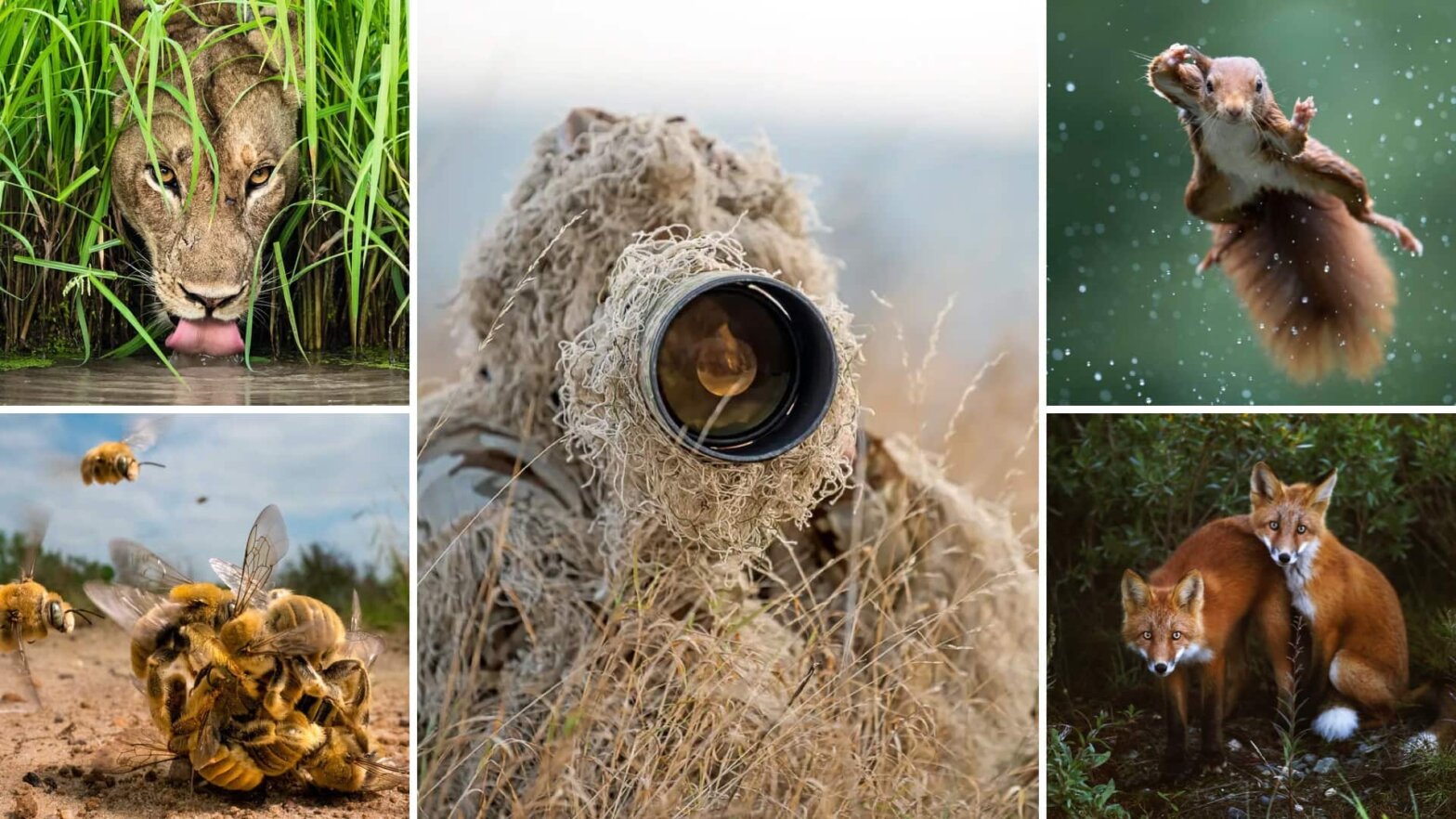Wildlife photography is a captivating pursuit that allows us to delve into the wonders of the natural world while considering its environmental implications. Through the lens, we can capture the essence and magnificence of wildlife, immersing ourselves in their habitats and understanding the delicate balance of ecosystems. This art form not only celebrates the breathtaking beauty of nature but also raises awareness about the need to protect and conserve our precious wildlife and their habitats. Read on for tips and techniques photographers use to capture pure nature.
Understanding Wild Life Photography
First, let’s define wildlife photography
The essence of wildlife photography lies in its unique blend of artistic expression and scientific observation. To truly understand the depth and importance of this type of photography, we must first look into its definition and explore what it encompasses.
WILDLIFE PHOTOGRAPHY DEFINITION
What is wildlife photography?
Wildlife photography is an exploration of the natural world, meticulously photographing the complex interactions of animals within their ecosystems. The camera lens becomes a tool for witnessing and documenting moments of truth about the life of animals, their behavior, and their intricate relationships with the environment. Wildlife photography requires patience, precision, and a deep understanding of animal behavior. It poses challenges distinct from other genres due to the unpredictability of wildlife and the elements. However, the rewards are equally unique — a single frame can embody the raw beauty, dynamism, and resilience of nature.
What is Wildlife Photography Defined By?
- Unpredictable encounters
- Artistic scientific blend
- Conservation-focused storytelling
Wildlife Photography Genres
Types of Wildlife Photography
Just as the natural world is diverse and multi-faceted, so too are the approaches to capturing it. The genre of wildlife photography is broad, encompassing a range of styles and techniques, each with its own unique perspective and methodology.
Macro Wildlife Photography
Macro wildlife photography is all about capturing small creatures up close and personal with a macro lens. It often involves insects, spiders, amphibians, and other small organisms. The beauty of macro wildlife photography lies in its ability to reveal details that are often overlooked by the naked eye.
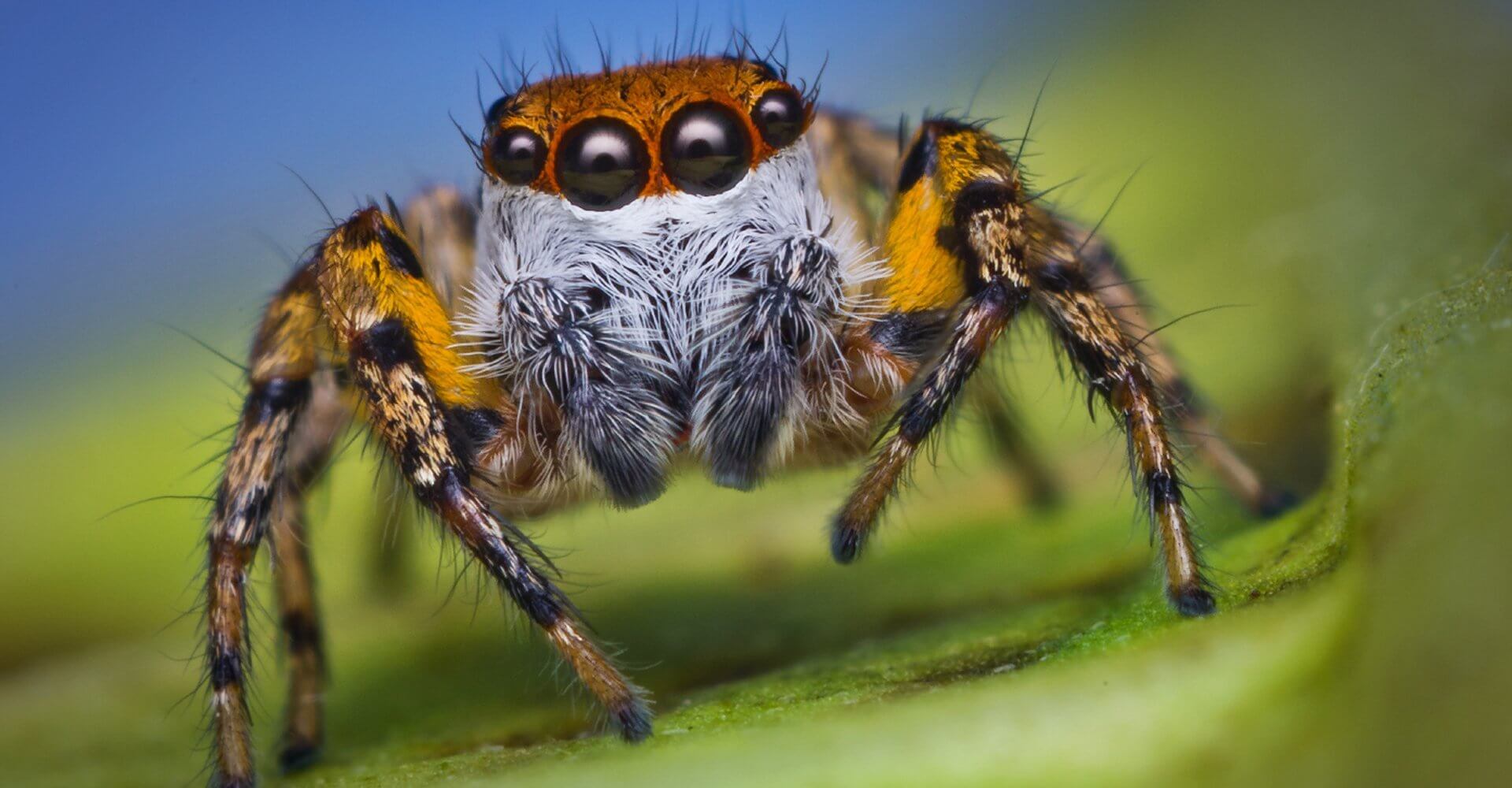
Photo by Thomas Shahan • Wildlife Photography Examples
Bird Photography
Bird photography is a popular subgenre that focuses on capturing images of birds in their natural environment. Often taken with telephoto lenses, from a distance, it demands a great deal of patience and precision, as birds are often fast-moving and unpredictable.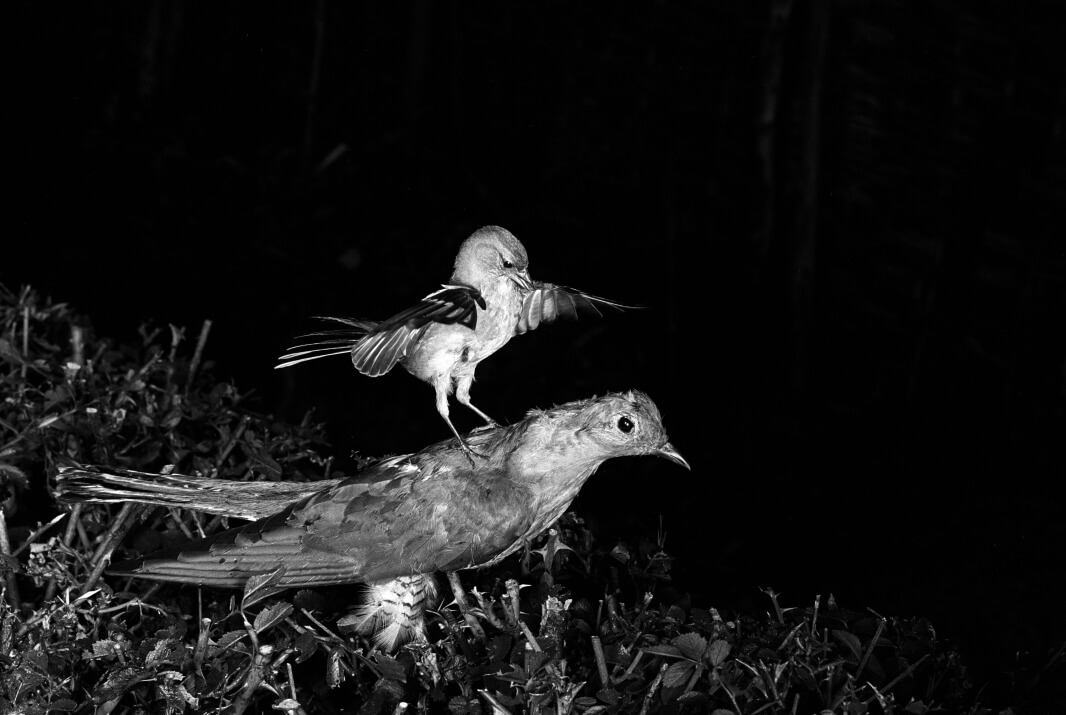
Photo by Eric Hosking
Here's a very thorough guide on finding and photographing birds from Simon d'Entremont, including camera settings and photo editing.
Bird Photography 101
Underwater Wildlife Photography
Underwater wildlife photography involves capturing aquatic life in oceans, seas, lakes, and rivers. This type of photography requires specialized equipment and skills, and offers an unparalleled glimpse into the mysteries of marine life.
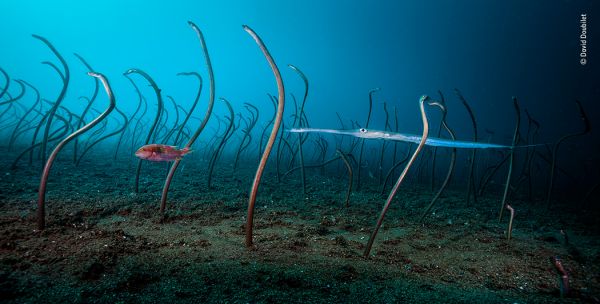
Photo by David Doubilet
Safari Photography
Safari photography is perhaps the most well-known type of wildlife photography. It involves photographing large mammals and other wildlife during a safari trip, often in African reserves. It offers opportunities to capture dramatic interactions within the animal kingdom.
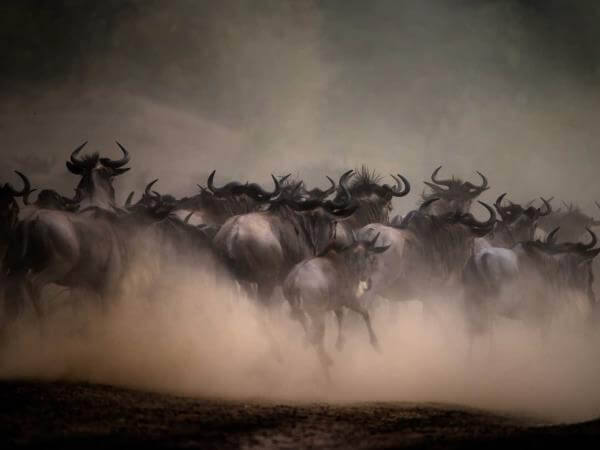
Photo by Paul Goldstein
After venturing into different styles of wildlife photography, it becomes evident that each approach provides distinct viewpoints into the mesmerizing realm of animals and their habitats. Now, let's look into the profound influence these breathtaking images have on raising awareness about the environment and fostering conservation efforts.
Related Posts
What is Wildlife Photography Used For?
Impact of Wildlife Photography
Wildlife photographers often collaborate with scientists and conservationists to document threatened species and their habitats, providing valuable data that can inform conservation strategies. The images they capture serve as a call to action, urging individuals, communities, and governments to take immediate steps toward protecting our planet's wildlife.
Take for example David Doubilet. As an acclaimed underwater photographer, Doubilet has captured compelling images that depict the state of our planet's aquatic ecosystems.
His poignant work focuses on the death of coral reefs caused by global warming, ocean acidification, and destructive human practices.
Through his lens, Doubilet documents the transformation of once vibrant reefs into ghostly, bleached skeletons — a sobering reflection of our time. His photography urges us to acknowledge the urgency of marine conservation and the beauty we risk losing if we neglect our underwater ecosystems.
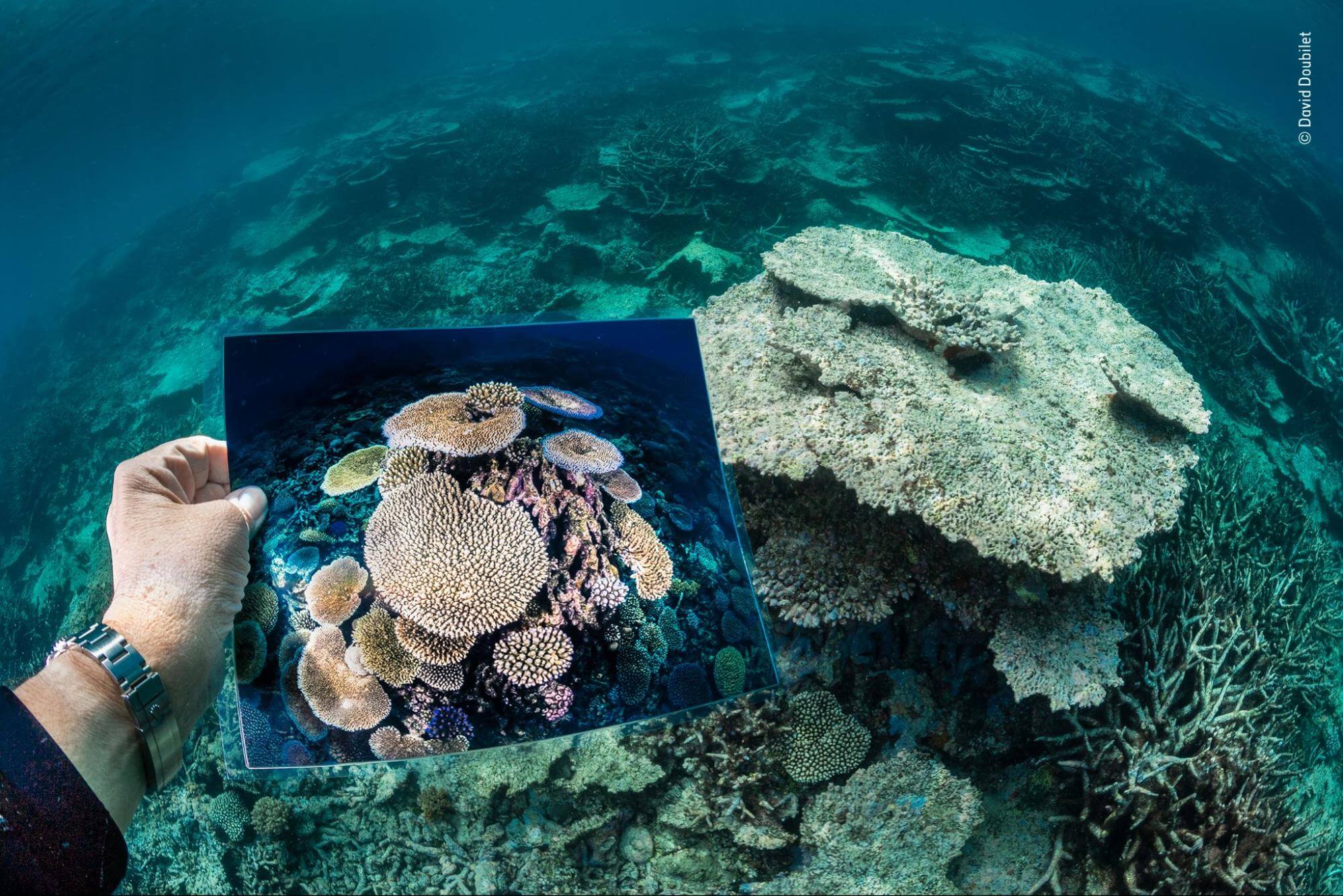
Death of a Reef by David Doubilet
The popularity of wildlife photography has also led to an increase in ecotourism, which offers a sustainable alternative for communities that may otherwise engage in harmful activities like poaching. Ecotourism provides income opportunities for local communities, making them stakeholders in the conservation of their surrounding environment.
As you can see, wildlife photography extends beyond the creation of visually stunning images; it's a powerful tool for promoting conservation and raising global awareness about our planet's diverse species and ecosystems.
Wildlife photography plays a pivotal role in fostering a deeper connection between viewers and the natural world, igniting a collective responsibility to protect our shared environment.
Up Next
Landscape Photography Tips
While the allure and impact of wildlife photography are indisputable, another genre of photography that resonates deeply with nature enthusiasts is landscape photography. In the following article, we shift our focus from capturing the spirit of the animal kingdom to mastering the art of photographing our planet's majestic landscapes.
Up Next: Landscape Photography →
Showcase your vision with elegant shot lists and storyboards.
Create robust and customizable shot lists. Upload images to make storyboards and slideshows.
